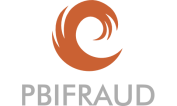The “PBI fraud” market (short for “Pre-Bank Instrument fraud”) refers to a clandestine niche where fraudulent actors exploit financial instruments and banking processes to deceive individuals, businesses, and sometimes financial institutions. This term is often associated with scams involving fake or misrepresented banking instruments, such as standby letters of credit (SBLCs), bank guarantees (BGs), medium-term notes (MTNs), or proof of funds (POFs). Here’s an overview of the secretive market and its mechanisms:
Key Features of the PBI Fraud Market
- Fake Financial Instruments:
- Fraudsters offer counterfeit or non-existent financial instruments, often claiming they are backed by reputable banks or organizations.
- Instruments like SBLCs, BGs, or MTNs are commonly cited, as they are complex and not well-understood by laypeople.
- Misuse of Financial Jargon:
- The fraud often involves using legitimate financial terms to appear credible. Terms like “PPP” (Private Placement Program), “lease guarantee,” or “monetization” are misused to confuse and convince victims.
- Untraceable Payment Methods:
- Payments for these fake services are often requested via untraceable means such as cryptocurrency, offshore bank accounts, or cash transfers.
- Target Audience:
- Small Businesses and Startups: Entities looking for quick funding or guarantees for loans are prime targets.
- Wealth Seekers: Individuals seeking high returns on investments.
- Naive Intermediaries: Brokers or agents who unknowingly participate in promoting fraudulent schemes.
- Networks and Secrecy:
- Operates in private circles, often using closed networks, private chat groups, or encrypted communication channels.
- Fraudsters may impersonate bank officials or use forged documentation to bolster credibility.
- Geographical Hotspots:
- Fraudsters often operate from jurisdictions with lax regulatory oversight, making legal action difficult.
- Offshore financial centers or regions with anonymity-friendly banking laws are frequently involved.
Common Types of Fraud in PBI Markets
- Advance Fee Scams:
- Victims are asked to pay a fee upfront for arranging the issuance of financial instruments that never materialize.
- Document Leasing Scams:
- Fraudsters “lease” fake SBLCs or BGs to businesses needing collateral for loans.
- Monetization Frauds:
- Victims are promised loans or cash by “monetizing” bank instruments, but the promised funds never arrive.
- Imposter Banks:
- Fraudsters create fake websites and communication channels mimicking real banks to deceive victims.
How to Recognize PBI Fraud
- Too-Good-To-Be-True Offers:
- Promises of unusually high returns or easy access to substantial funds.
- Pressure for Upfront Fees:
- Demands for fees before any verification of the instrument.
- Lack of Transparency:
- Limited information on the issuing bank or the process.
- Unverifiable Claims:
- Using obscure, unverifiable institutions or third parties to legitimize claims.
Impacts of PBI Fraud
- Financial Loss: Victims lose substantial sums of money through advance fees or worthless instruments.
- Reputational Damage: Businesses caught in these schemes can suffer credibility issues.
- Market Distrust: These scams erode trust in legitimate banking instruments.
Mitigation and Red Flags
- Work only with regulated and reputable financial institutions.
- Verify all financial instruments through official channels.
- Be wary of unsolicited offers involving complex banking products.
- Consult legal and financial experts before engaging in such transactions.
If you suspect involvement in PBI fraud, it’s critical to report the issue to financial authorities or law enforcement to prevent further damage.



